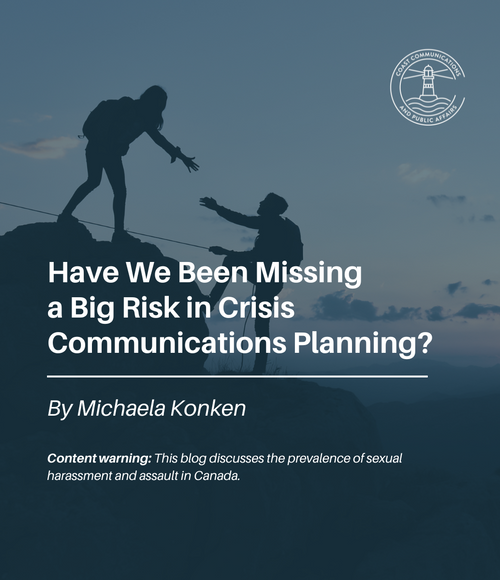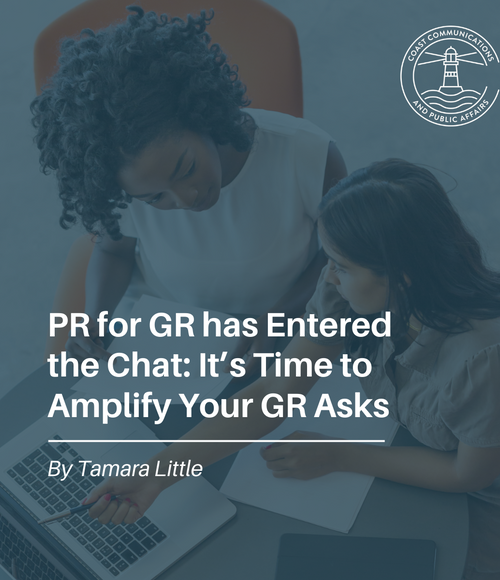By Maclean Kay, former Coast Communications Media Trainer and Writer.
At Coast Communications we know your time and money are precious. So seriously, why bother with media training? You’re probably thinking you’ll be fine without it.
The truth is, much of the time, you’re probably right. Your average local newspaper reporter isn’t out to get you. And if your task solely consists of delivering straightforward, uncomplicated good news – like announcing when Santa Claus will be available to take photos with kids at the mall – it will be fine.
But then, there are those other times. When media is tracking a story that is going to be tough. Or worse, something bad has happened, and it’s your job to explain how, why, and what happens next.
Media training is not about rehearsing specific answers to scripted questions – after all, you can do that in the mirror. It’s about learning how to put yourself in the right mindset. It’s about understanding how to ensure your message gets across. It’s about equipping yourself with skills, instead of a single, inflexible, memorized response.
With that in mind, here are five points on why media training may be a good investment for you and your organization.
1. It’s harder than it looks.
[A friendly reporter tries to convince Josh not to attempt running the White House press briefing, because he’s never done it before]
Josh Lyman: Let me tell you something, mi compadre. You guys have been coddled. I'm not your girlfriend, I'm not your camp counselor, and I'm not your sixth-grade teacher you had a crush on. I'm a graduate of Harvard and Yale and I believe that my powers of debate can rise to meet the Socratic wonder that is the White House press corps.
[heads to the podium]
-The West Wing
Needless to say, it was a disaster.
People think being interviewed is easy, until it actually happens. When the recorder turns on, when the camera is in your face – something happens. It’s different. Even the most gifted speakers can suddenly become nervous and tongue-tied
2. It’s about more than your answers.

After the first-ever US presidential debate broadcast on television, radio listeners told pollsters the debate was either a draw, or a win for Richard Nixon. People watching on TV overwhelmingly called John F. Kennedy the winner.
What happened?
Whatever you think of Richard Nixon, he was a skilled debater. That night, he performed well – better than Kennedy, if you believe those radio listeners. But Kennedy looked calm, poised, and yes, handsome. Nixon tried new makeup to conceal his persistent five-o’clock shadow. It clogged his pores; he couldn’t stop sweating.
In the YouTube age, this lesson doesn’t just apply to presidential candidates. Your temperament, calmness, and poise are more important than ever. Let us show you how to get there – and stay there.
3. Know what to do when it goes south.
You’ve messed up. You’ve said something you shouldn’t have. What happens next is crucial. It doesn’t take a long trip through YouTube to find examples of interviews that snowballed out of control – they tend to go viral.
Good media training should give you the tools to stay on course, but also give you a roadmap to recovery.
4. This is part of your job now.
If your job description contains words like “executive,” “relations,” “communications,” “community,” “engagement,” or even just “public” – you can expect to deal with media at least occasionally.
Don’t think of media training as a fire drill; something you go through the motions, knowing you’ll probably never have to face the real thing, and even if you do, there are professionals coming to save you.
Instead, think of it as training to be a volunteer firefighter – eventually, you will have to face the real thing. You should have some basic skills.
5. Media training isn’t just for dealing with media
Maintaining grace and poise under duress; being prepared for difficult questions; and knowing how and where to steer professional conversations.
These are valuable skills in any setting.
Media Training at Coast Communications
Do you need media training? Coast Communications offers media training from experienced former journalists and media relations experts. We can provide group sessions or one-on-one; full training sessions or refreshers. Training includes theory and practice on camera. Call us. We can help.
PS. For a clip of what happens in the West Wing episode click here (the one about the secret plan to fight inflation.)



